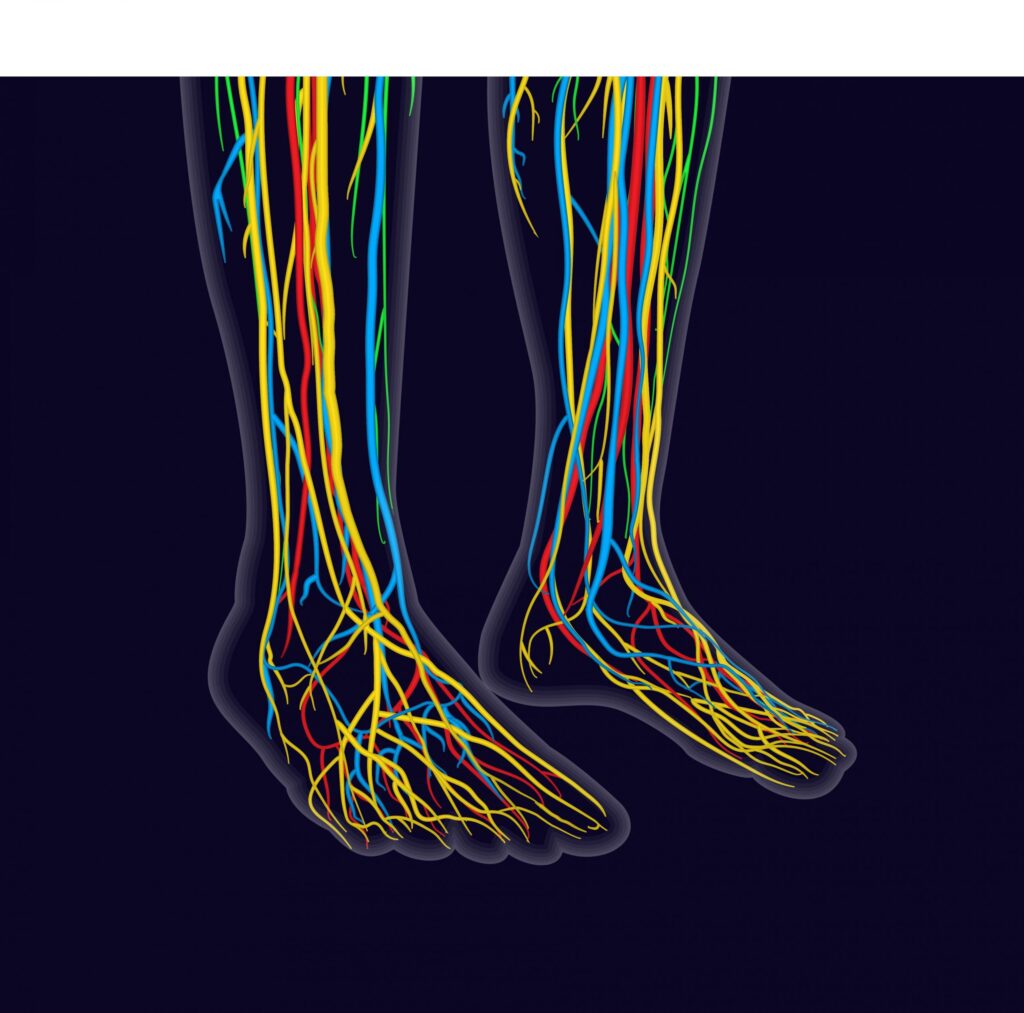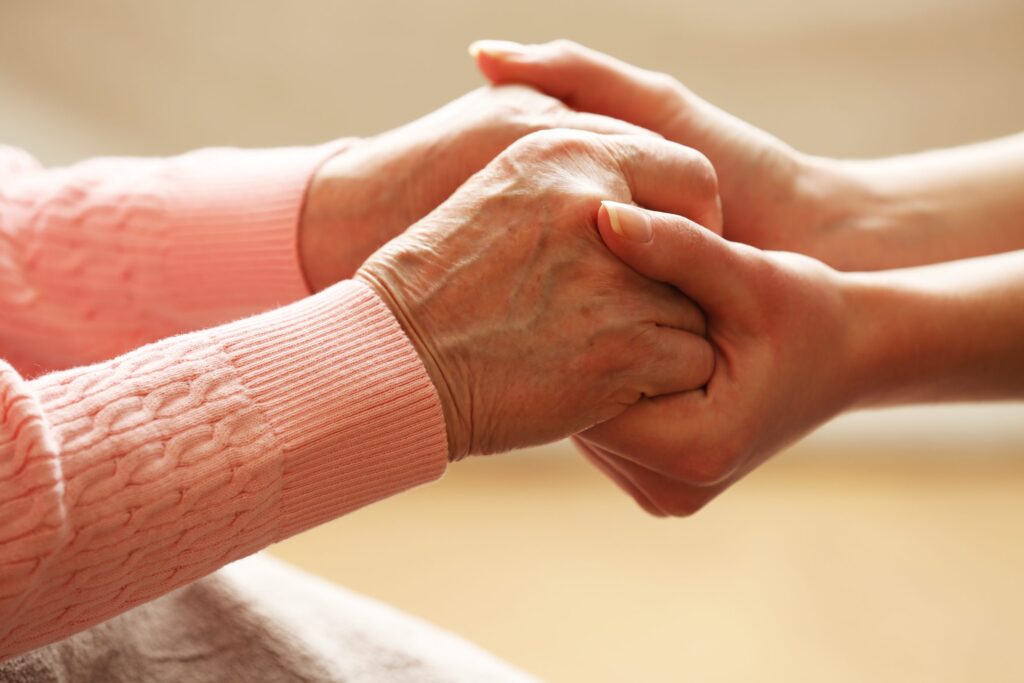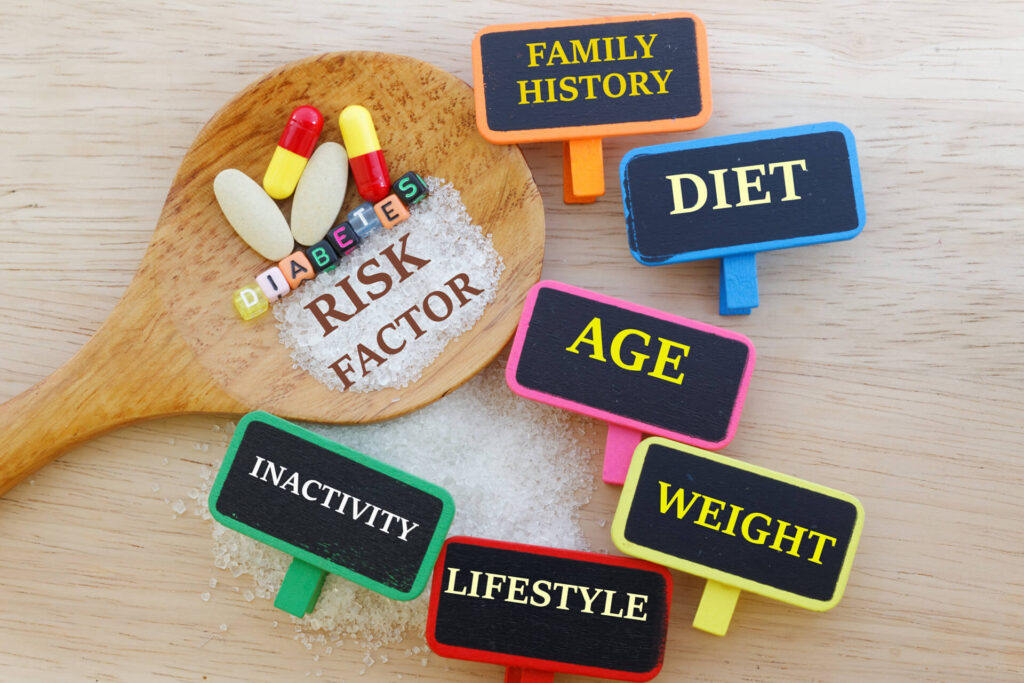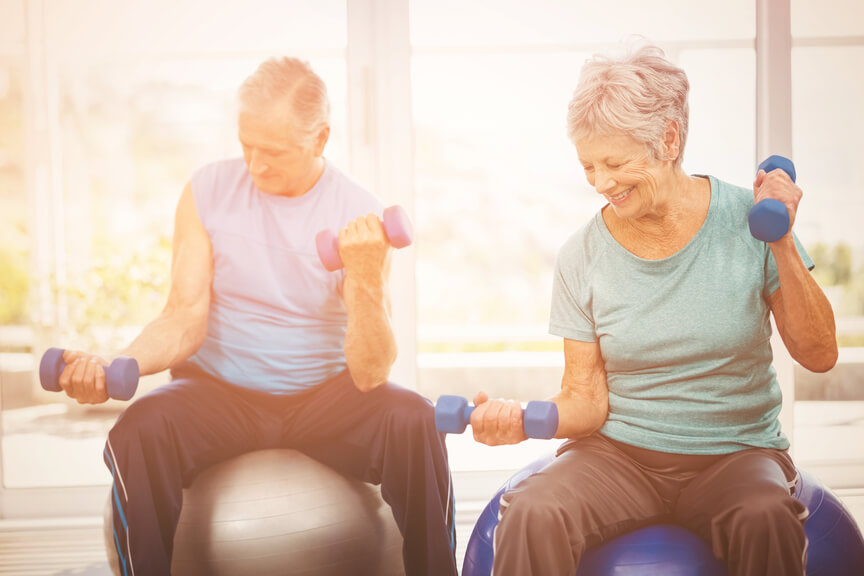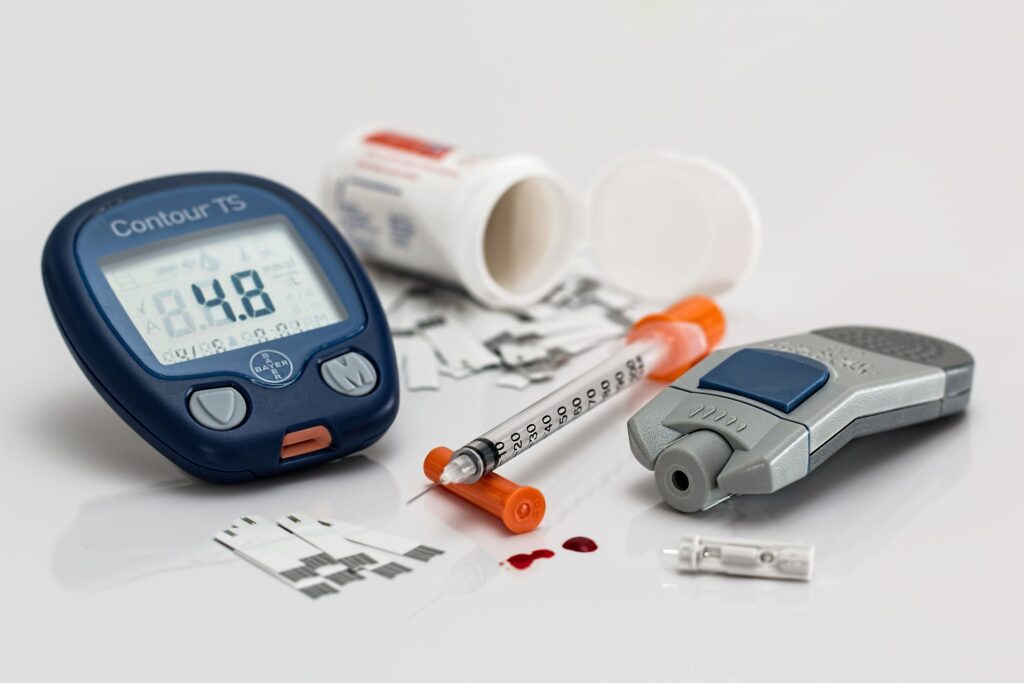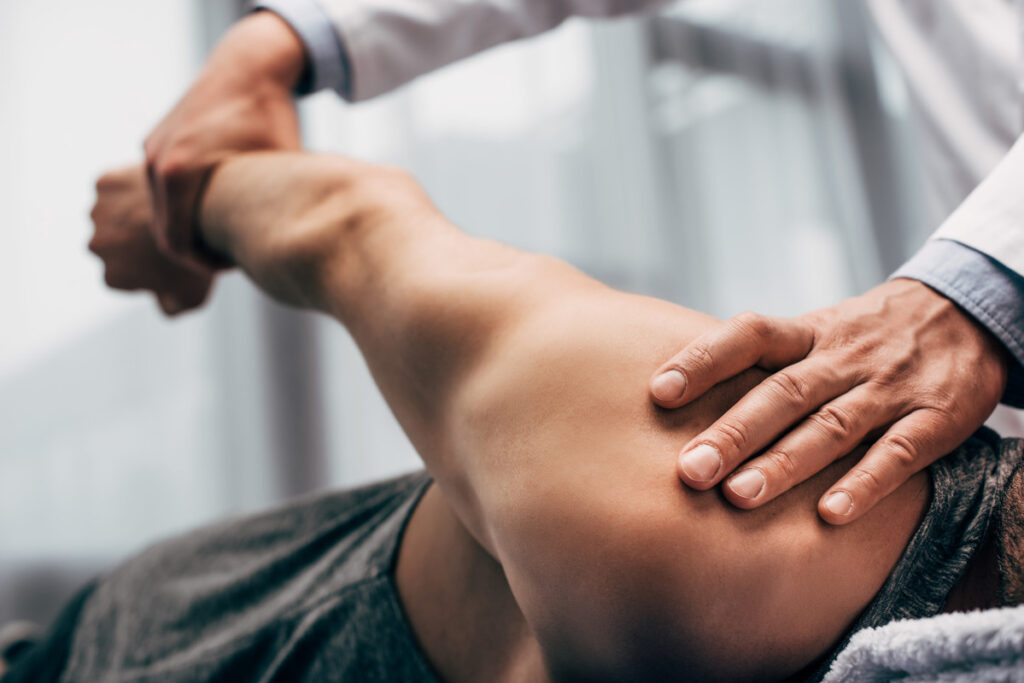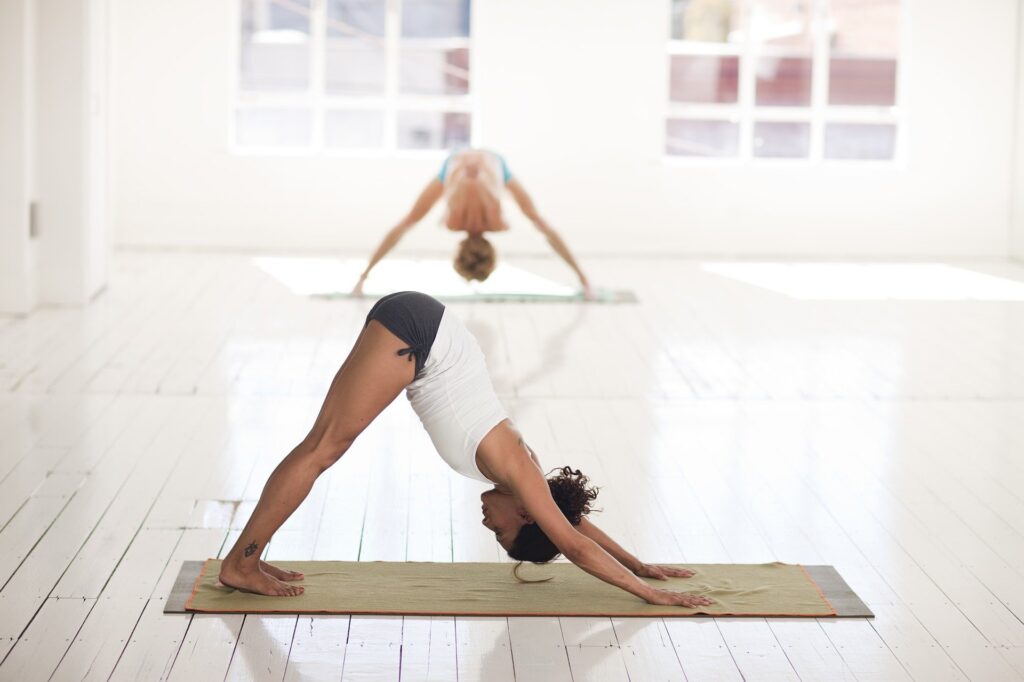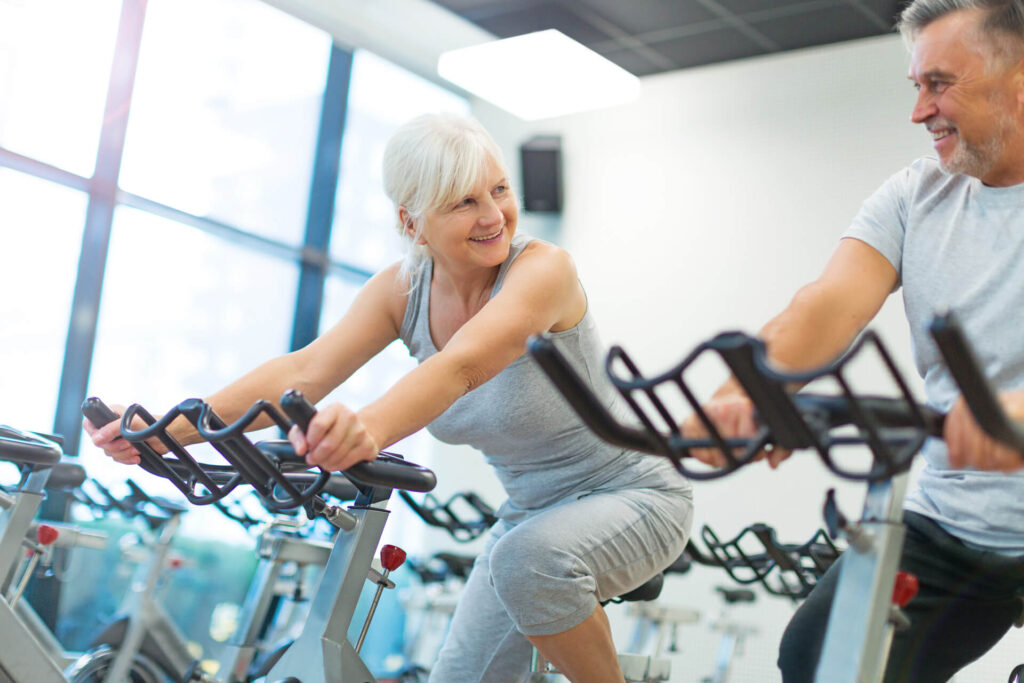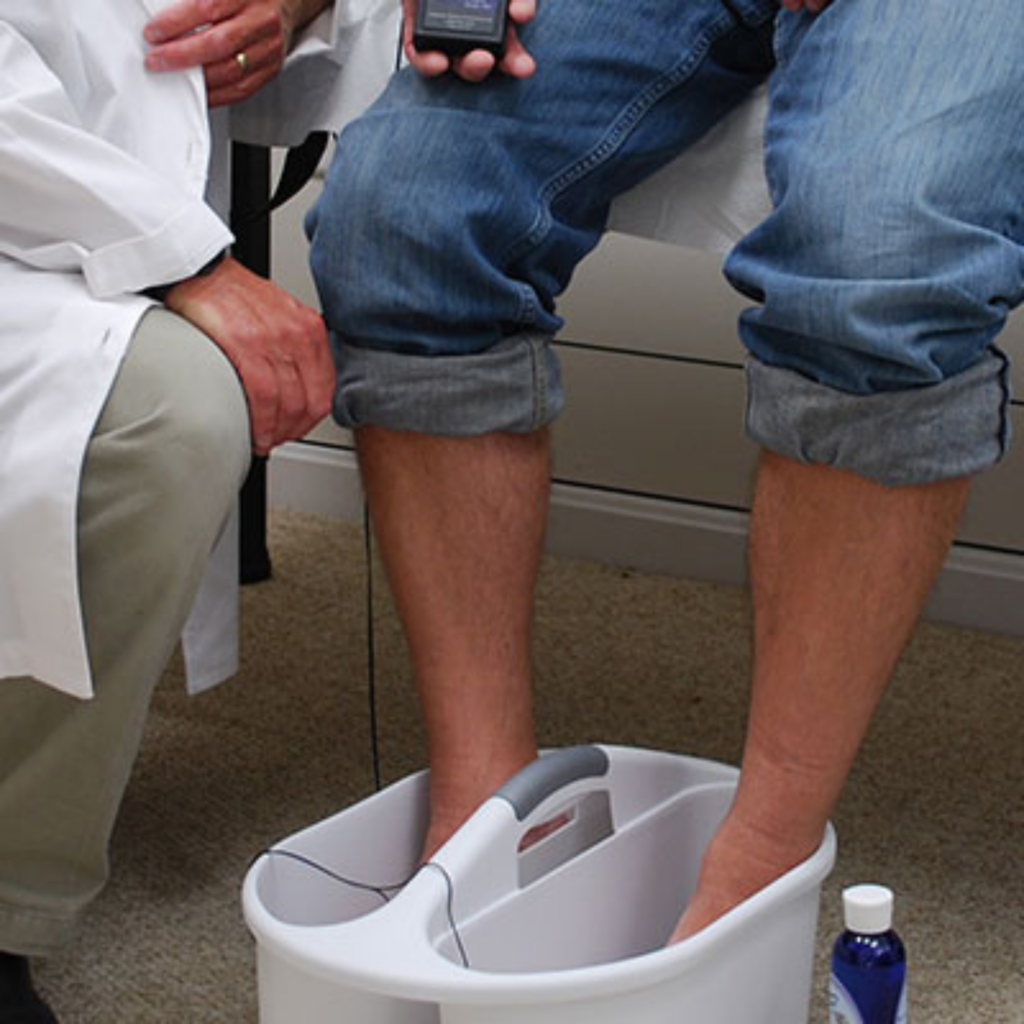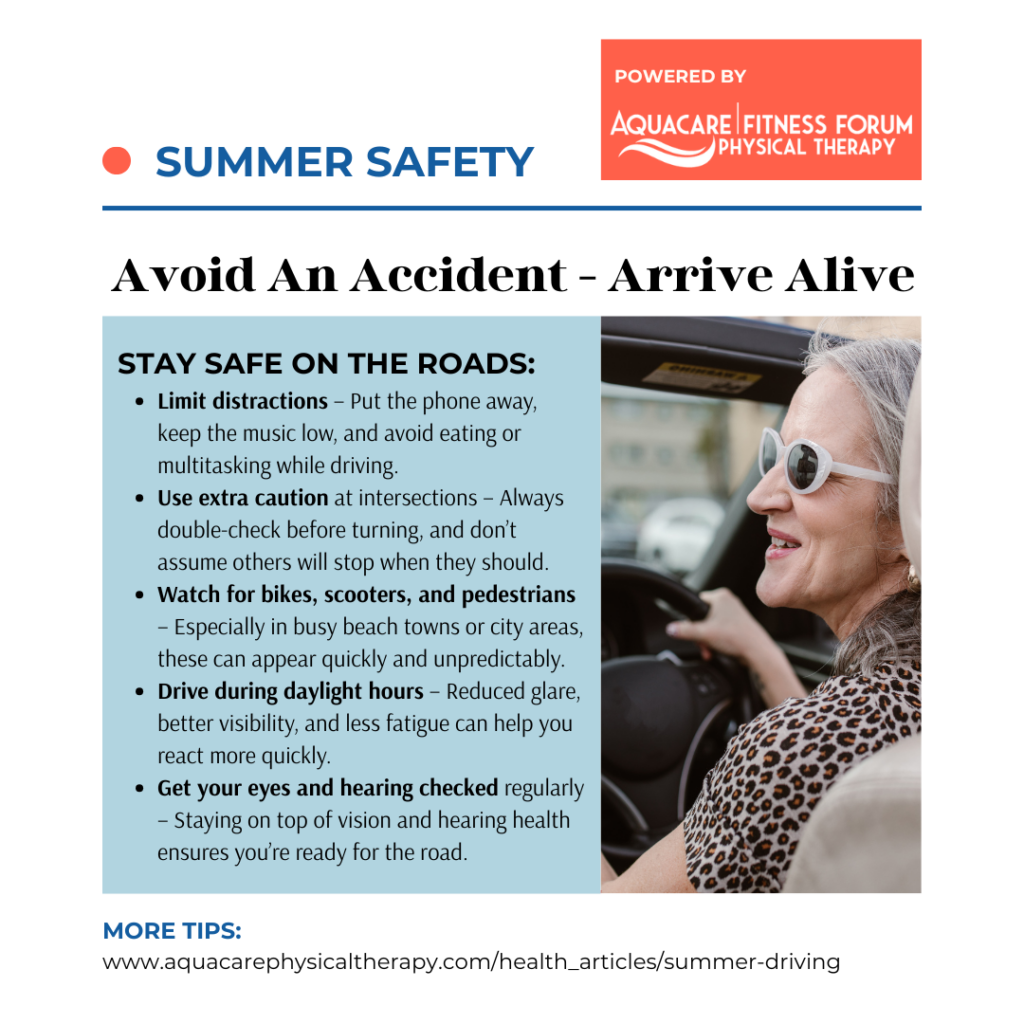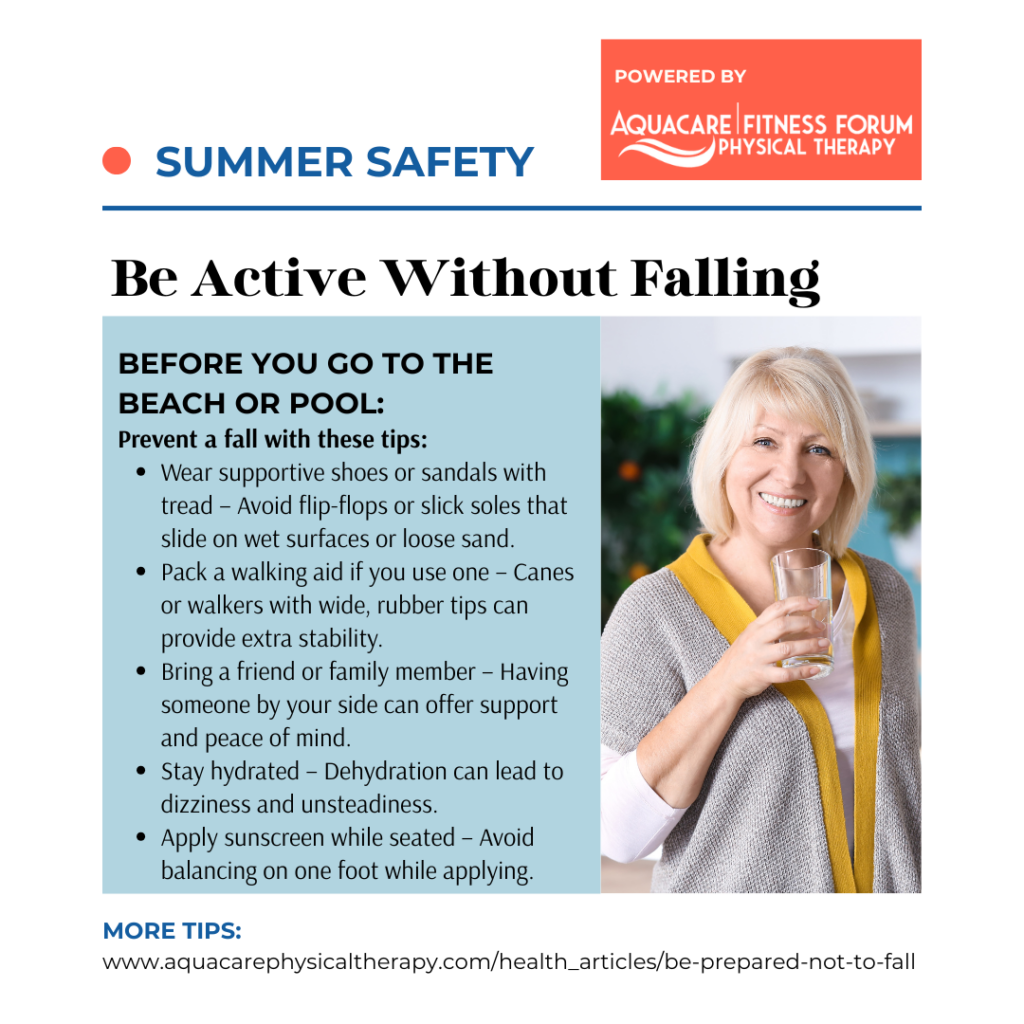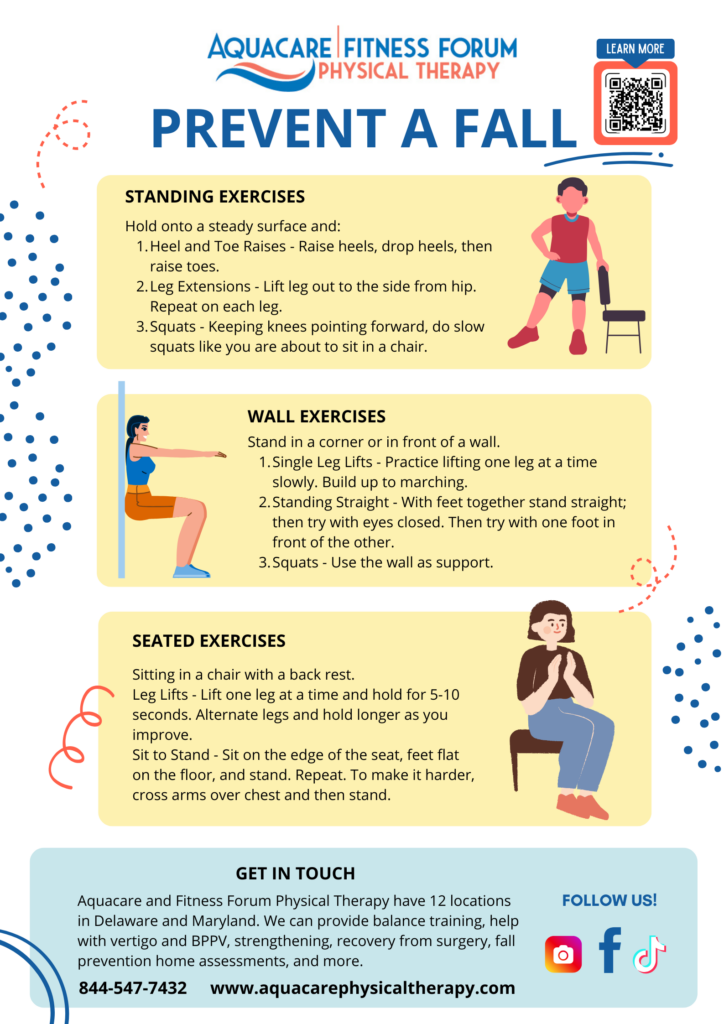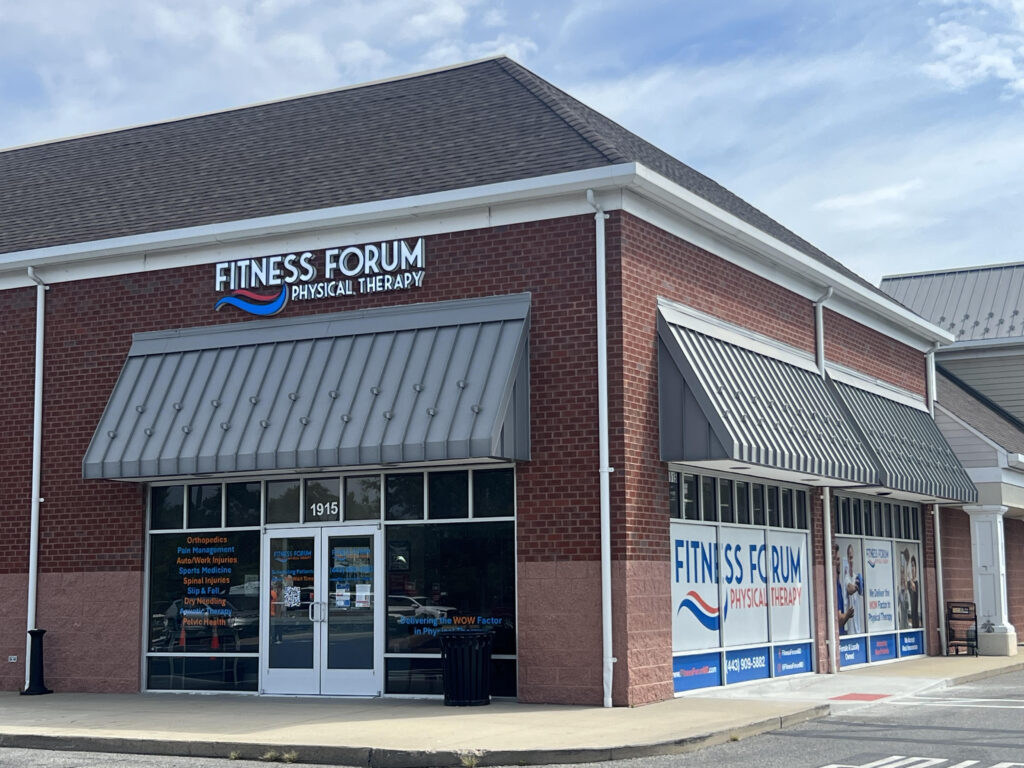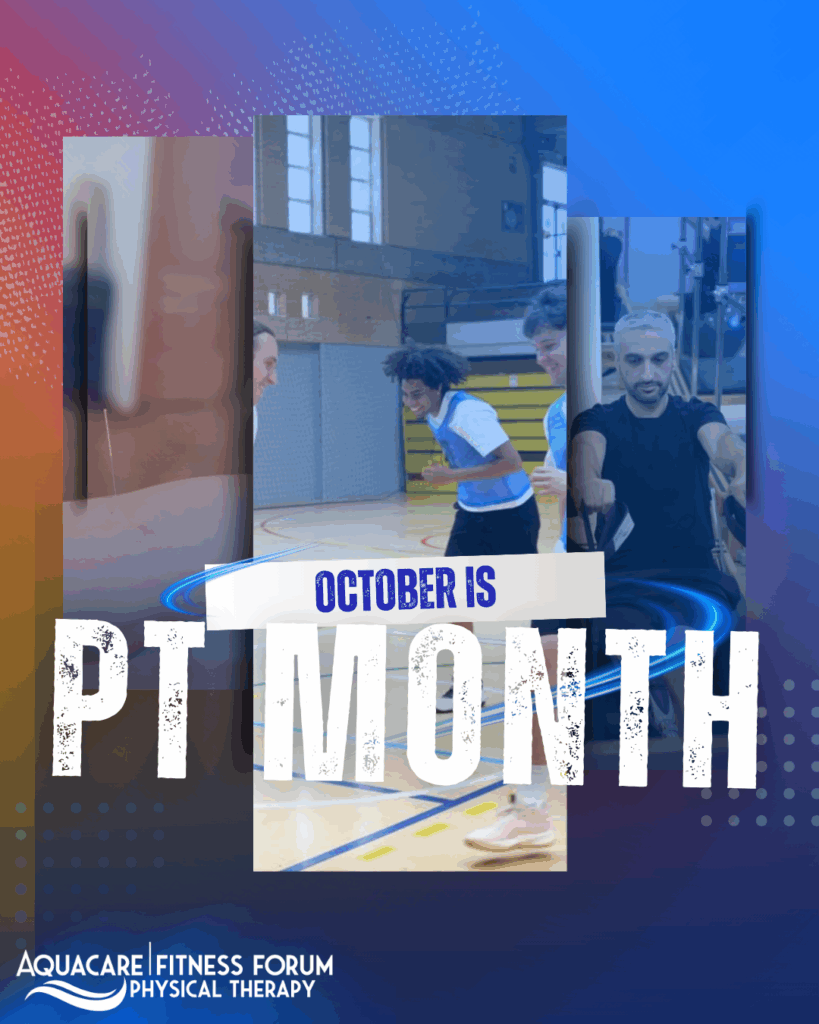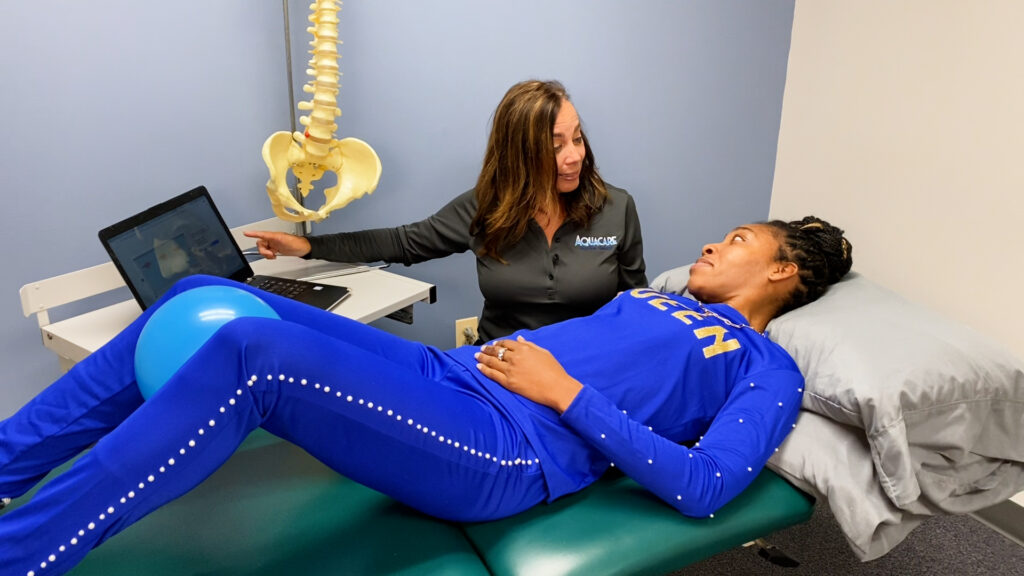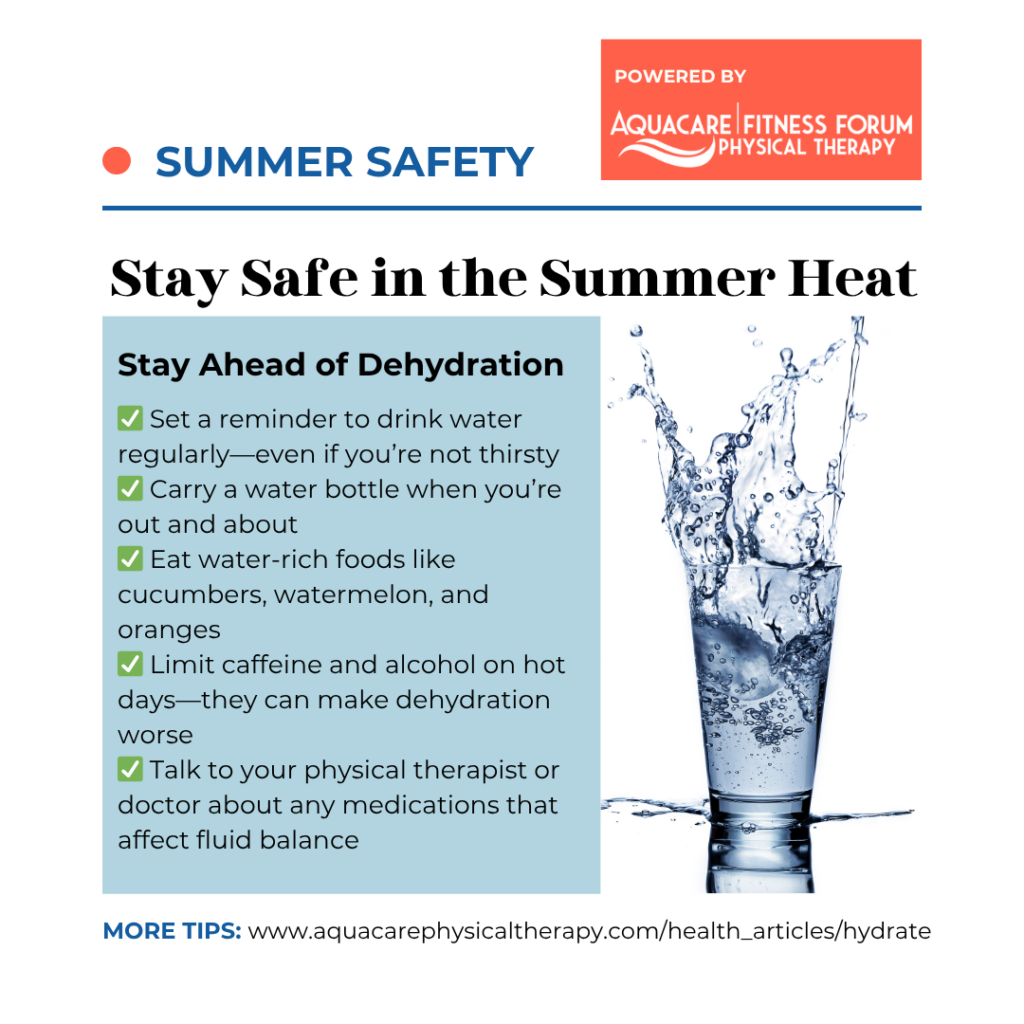
Don’t Let Dehydration Sneak Up on You This Summer

As temperatures climb, so does your risk of dehydration—and for adults over 65, it can happen quicker than you might expect.
Our bodies naturally lose water through sweat, but aging decreases the body’s ability to conserve water and sense thirst. Combine that with common medications (like diuretics), certain health conditions, or just being out and about in the summer heat, and it’s easy to see how dehydration can become dangerous fast.
But the good news? With a few simple steps, you can stay cool, stay safe, and stay out of the ER.
Signs of Dehydration to Watch For
Not everyone feels thirsty when they’re low on fluids. In fact, older adults are less likely to feel thirsty—even when their body really needs water. Here are some common signs you might be dehydrated:
Dry mouth or cracked lips
Headache or lightheadedness
Fatigue or weakness
Confusion or irritability
Dark-colored urine or infrequent urination
Muscle cramps
Rapid heartbeat or feeling faint when standing up
If you’re noticing any of these symptoms, take it seriously. Dehydration can lead to dangerous falls, confusion, urinary tract infections, and even hospitalization.
What to Do If You Think You’re Dehydrated
Drink water—slowly and steadily. Sip small amounts rather than chugging.
Add electrolytes if needed. Drinks like Pedialyte, low-sugar sports drinks, or water with a pinch of salt and a splash of juice can help restore balance.
Get out of the heat. Move to a cool, shaded, or air-conditioned area.
Call your doctor if symptoms worsen. If you’re feeling disoriented, dizzy, or unable to keep fluids down, seek medical attention right away.
How to Stay Ahead of Dehydration
Here are a few ways to make hydration part of your summer routine:
✅ Set a reminder to drink water regularly—even if you’re not thirsty
✅ Carry a water bottle when you’re out and about
✅ Eat water-rich foods like cucumbers, watermelon, and oranges
✅ Limit caffeine and alcohol on hot days—they can make dehydration worse
✅ Talk to your physical therapist or doctor about any medications that affect fluid balance
Stay Active, Stay Safe, Stay Hydrated
Whether you’re gardening, visiting the boardwalk, or attending a grandchild’s baseball game, you deserve to enjoy your summer without setbacks. Staying hydrated is one of the easiest and most powerful ways to protect your health.
If you’ve been feeling a little off lately—tired, dizzy, or just not yourself—talk to your healthcare provider. And if balance, mobility, or strength are concerns, physical therapy can be a great way to improve your confidence and keep you moving safely this summer.
Give us a call if you need a summer refresher on balance, strength, and mobility.

